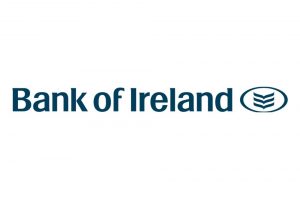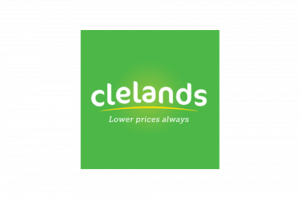
Growth Strategies for Your Business – Succeed in 2015
As we are coming to the end of one business year and prepare for another, now is the time to reflect on the successes from the last year. What areas can the business improve on going into 2015? Every small business has limited resources to some degree but there are always ways where you can compete and do more. Sometimes mapping out specific strategies to follow can help with the creative aspects of small business campaigns and even by building small strategies into your weekly routine you will be surprised how quickly success can snowball. Here are 11 growth strategies to consider and implement for 2015.
1. Digital Media Strategy
Digital media encompasses everything from your website to your social media channels. Broadly speaking this is the way that you interact with the general public online. Every small business should be active on the main social media channels (LinkedIn, Facebook, Twitter, Google Plus). You should be posting on each 3 times a week and have all of your social media visible on your business profiles (email signatures, headed paper, branding). The business should be making new connections on a daily basis. On LinkedIn join as many groups as applicable and invite connections from every new business contact you meet. On Facebook post regular updates on your events/activities and encourage your followers to share your content as that is where the benefits of Facebook now lie. On Twitter tweet interesting events that you come across on a regular basis and make them interesting for the viewer. Again the idea is that if they are interesting they are more likely to be shared. On Google Plus add regular content and get as many customer reviews as you can as this will help with your search rankings. It is possible to double your website traffic in 4 months as the author has done just that with his campaigns so nothing is impossible!
2. Networking
You need to be active and get out and network with as many groups as you can. The trick here is to pick a relatively small number of networking groups and make genuine connections with people in that group. The old adage of “People Buy From People” still applies and particular so in business to business circles. Another trick is not to sell directly to the members of the group. Use them as referrers for you to their contacts (indirect salespeople). Many small business support groups primary focus is to help small business in as many ways as possible. Organisations like the Chambers of Commerce, ISMA, Small Firms Association and the Local Enterprise Offices are all very proactive and approachable. For something more formalised you can try the local BNI Group in your area or Referrals Ireland. Pick two or three that are best suited to you and make a genuine commitment to them for a year. If you engage regularly you should see the results over that time period.
3. Strategic Alliances
All businesses should seek to create as many strategic alliances as possible. This can be areas as simple as meeting with your business contacts and agreeing to keep an ear open for opportunities for each other, or more formalised arrangements such as cross selling/co-promotion of each other’s products. Specific strategies could include cross pollination campaigns to each other’s databases, hosting joint events or splitting the cost of hiring some specialist assistance. The pay offs of these alliance can be instantaneous or take time but you will never know until you start trying some initiatives.
4. Public Relations
Yes PR is an area small businesses need to focusing some attention and is not the sole domain for larger companies with loads of money to spend on glitzy public relations specialists. Again a little effort can go a long way. Small publications and radio stations are constantly crying out for unique content, particularly success stories from small businesses. Radio stations are also actively seeking knowledgeable and interesting guest speakers for their shows. One recent example we came across was a news story regarding a pig farm in Tipperary who are using social media to generate meat orders from all over the world. Feel good stories are always in demand. Use some of the free online PR websites to get your press releases out to media contacts and write interesting articles yourself and send them over to magazines and publications you think would be interested in the content. Do some first-hand market research regarding your industry and put out into the public domain. If you can get your name referenced you will become perceived as an expert in the area and become the go to person on a subject. That’s how all of the business commentators get their media work!
5. Advertising
On this one you need to be clever and really focus in on the channels that you feel will have the best chances of success. You have to stand out from the crowd in some way while at the same time making sure you get a return on your advertising spend. For online adverting many businesses try Google AdWords as a starting point. This can be great at driving traffic to your website but you have to make sure it is the right kind of traffic. LinkedIn is becoming increasingly popular for business to business advertising as it allows the advertiser to virtually choose the specific industry person you want your ad to be soon by. Twitter is in its early stages of advertising and Facebook can be hit and miss as it is display as opposed to search orientated. Offline you can try very specific advertisements in Trade Magazines you feel will reach the right audiences or better yet Advertorials which are interesting stories written by you indirectly marketing your businesses (softer sell). Stay away from general newspaper or magazine ads as they rarely result in actual sales for small businesses.
6. Mergers/Acquisitions
Again this is an area where the traditional perception would be that only giant corporations buy up or merge with competitors. This is not the case and many small business engage in M&A activity as a means of growing inorganically each year. Acquisitions usually involve a larger company buying out a smaller firm in order to to access their revenues and customer base. Mergers are usually companies of similar size joining together for synergy and economies of scale reasons. As more business finance becomes available M&A activity should pick up in 2015 and if a small business gets very successful very quickly a buy out of the firm by a large rival is seen as a highly lucrative disposal strategy for the company shareholders and is the holy grail for many when setting up their small business in the first place.
7. Events
This can take the form of organising your own event or attending trade seminars to showcase your business. Organising your own event on a monthly or quarterly basis can be a great way of getting in front of potential customers and also gives you something to promote. It is also a reason get in touch with your database in the first place. Hosting your own event gives you the expertise factor and portrays the business as experts in your field. Trade show events are used to sell product and generate awareness for your business to a wider audience. Be aware that some of the large trade fairs can be very expensive (Showcase Ireland, Ideal Home) so no need to go mad and take the biggest stand available. Most small companies do just as well with the smallest stand as the largest. Start off with a few smaller local events first and get used to the process and upscale from there. Remember to measure the monetary return from every event you do!
8. Active Referral Schemes
I use the word “active” because that’s exactly what works best. You have to set a system in place that asks for a certain amount of referrals from your satisfied clients each month. Some research suggests that as many as 98% of customers would be happy to recommend a business but are never asked! That’s a frightening statistic when you think about the amount of lost opportunities if you are one of the 98%! Set a realistic target of client referral requests each month (say 5 per month to start off) and reward current customers that actively recommend you to their clients (loyalty discount, free service, etc). Don’t give money back but reward future work instead as its better for cash flow. A referral from a happy client carriers much more weight than a first time colder contact (e.g. seeing an ad for the first time) and has a much greater chance of success.
9. Direct Mail Campaigns
These usually take the form of Newsletters sent out to clients and prospective clients on a monthly or every fortnight. The content can be a version of a topic specific to your business as well as interesting industry content that a wider audience might enjoy. Open rates on target databases can be quite low for such campaigns (around 15%) but if you can continue adding to your database and build up your contacts then your message will still reach a wide enough audience to make it worthwhile as a first point of contact. Make sure you follow up on every response and have plenty of call to actions within the email (E-Book. Click to Website, etc). Also use a content marketing system like Mailchimp or Constant Contact. Never use your outlook as there is a very good chance you will get yourself spam listed if you do!
10. Franchising
For successful businesses that have a few years successful trading under their belt and have a business model that can be geographically replicated then franchising could be the ideal way of growing your businesses. Key issues to consider would be the profitability of the existing business (i.e. is there enough in it for a franchisee), is the success currently experienced transferrable or is it a once off hit (location specific success, drive of owner) and how powerful is the brand that you are franchising (the brand will need to pack a punch or otherwise the franchisee wouldn’t need it to compete). A franchise fee is usually received by the business owner along with a small share of the franchisees profits. McDonald’s and closer to home Supermacs are just two examples of highly successful success stories of franchising.
11. Blogging/Content Marketing
Every report that you will ever read will tell you that websites that blog and have regularly updated content get far more visitors and leads than website that are static (rarely updated). To be clear a Blog is a regularly updated website or content diary that a business uses to attract a greater volume of search traffic to their website. Every page is SEO’d (optimised) and the content that is written is a mixture of interesting industry pieces and generally interesting topics that people can share with friends/colleagues and “draws audiences in”. Once at your door the idea is that you will be able to generate interest in your product or service. Blogging regularly (writing new articles/pages twice a week) can have a big impact on your online rankings and allows small business to compete with the big boys when it comes to online promotion. Get active and get new leads! Keep your website updated and use blogging as a lead generation tool not just posting for postings sake!
All of the above growth strategies should be explored for suitability for your specific business. Try as many as possible in 2015 and stay focused for a period of time with each. Don’t give up if you don’t get immediate success as success take time and if building growth into a business was easy everyone would be doing it! The strategies listed above require time as opposed to money which is in shorter supply than time for many small businesses. Draft a plan around each and remember a little can go a long way. The author has managed to double the website traffic of their business within 4 months through Content Marketing, a home repairs client has generated over €20k in revenue from a €1k Facebook spend and another client generated significant news coverage through a research article they publicised on LinkedIn that was picked up by a Sunday Times journalist. All valuable results so the precedent is there already. Start off small but aim high!
Avid Partners – Accountants & Business Advisors help clients with their growth strategies. Avid Partners can be contacted by calling us on 0818 303087. You can email us at advice@avidpartners.ie. Alternatively you can fill in the Enquiry Form below and we will get back to you as soon as possible.
Scenarios:
-
 "A breath of fresh air. Your firm demonstrated enormous commercial understanding in turning around negotiations with a potential target vendor. I admire your style and ability to drive the deal forward. Many thanks."
"A breath of fresh air. Your firm demonstrated enormous commercial understanding in turning around negotiations with a potential target vendor. I admire your style and ability to drive the deal forward. Many thanks." -
 "I would like to say I'm very happy with your service, especially the audit team, your staff are always friendly, helpful and a pleasure to deal with."
"I would like to say I'm very happy with your service, especially the audit team, your staff are always friendly, helpful and a pleasure to deal with." -
 "Your business approach to clients is very impressive. I have always found that when explaining the types of service on offer, it is always concise and straight forward. The level of trust that clients place in your company and its staff speaks volumes."
"Your business approach to clients is very impressive. I have always found that when explaining the types of service on offer, it is always concise and straight forward. The level of trust that clients place in your company and its staff speaks volumes." -
 "I would like to take this opportunity to say how much we are impressed with your company's professionalism, it has been a pleasure working with you all and we look forward to working with you in the future."
"I would like to take this opportunity to say how much we are impressed with your company's professionalism, it has been a pleasure working with you all and we look forward to working with you in the future." -
 "Avid Partners - Accountants & Business Advisors are an excellent firm of accountants, their quality ethos is outstanding."
"Avid Partners - Accountants & Business Advisors are an excellent firm of accountants, their quality ethos is outstanding." -
 "I have dealt with Jamie O' Hanlon, of Avid Partners - Accountants & Business Advisors Chartered Certified Accountants, for a number of years as he is auditor to one of my clients. I have always found him to be professional and responsive in his approach."
"I have dealt with Jamie O' Hanlon, of Avid Partners - Accountants & Business Advisors Chartered Certified Accountants, for a number of years as he is auditor to one of my clients. I have always found him to be professional and responsive in his approach." -
 "Service is second to none; there is always someone at the end of the phone for any business advice. The staff are very easy to get along with, very approachable and know exactly what they are talking about"
"Service is second to none; there is always someone at the end of the phone for any business advice. The staff are very easy to get along with, very approachable and know exactly what they are talking about" -
 Having got to know the company through the BNI we decided it was time to change accountant. What impressed me about Avid Partners was their professionalism. Their attention to detail was second to none and as an added bonus they are a sounding board to all of my questions. Avid also potted some irregularities in my accounts from the previous few years and saved me substantial money on the years tax bill. Avid Partners deliver a first class service which is everything you could want from an accountant and I am happy to give this endorsement.
Having got to know the company through the BNI we decided it was time to change accountant. What impressed me about Avid Partners was their professionalism. Their attention to detail was second to none and as an added bonus they are a sounding board to all of my questions. Avid also potted some irregularities in my accounts from the previous few years and saved me substantial money on the years tax bill. Avid Partners deliver a first class service which is everything you could want from an accountant and I am happy to give this endorsement. -
 We at Fitzies Bar have worked with Avid Partners - Business & Financial Advisers for over five years. We find that the advice and support offered to us in addition to all of our book-keeping requirements to include payroll, VAT, etc. is invaluable and has helped to contribute to our continued growth especially in these challenging times. I would have no hesitation in recommending Avid Partners.
We at Fitzies Bar have worked with Avid Partners - Business & Financial Advisers for over five years. We find that the advice and support offered to us in addition to all of our book-keeping requirements to include payroll, VAT, etc. is invaluable and has helped to contribute to our continued growth especially in these challenging times. I would have no hesitation in recommending Avid Partners. -
 Jamie and his staff are a pleasure to work with. They respond promptly to any queries we have and are critical to our financial planning and the future needs of our business. I would highly recommend them to anyone interested in accounting services.
Jamie and his staff are a pleasure to work with. They respond promptly to any queries we have and are critical to our financial planning and the future needs of our business. I would highly recommend them to anyone interested in accounting services. -
 We at Stillorgan Cycles have used Jamie and his Team at Avid Partners – Accountants and Business Advisers for over five years. We have found that the retail advice and support offered to us is second to none and has helped to contribute to our continued growth especially in these challenging times. I would have no hesitation in recommending Avid Partners.
We at Stillorgan Cycles have used Jamie and his Team at Avid Partners – Accountants and Business Advisers for over five years. We have found that the retail advice and support offered to us is second to none and has helped to contribute to our continued growth especially in these challenging times. I would have no hesitation in recommending Avid Partners. -
 I met Avid Partners through a local business networking group. We had been using the same accountants for years and found that in these harsh economic times that we were not getting good enough value or service. We were very impressed by the company's professionalism and enthusiasm and genuine interest in helping us get the most out of our business. As a result we are now clients of Avid Partners and are thrilled with our decision.
I met Avid Partners through a local business networking group. We had been using the same accountants for years and found that in these harsh economic times that we were not getting good enough value or service. We were very impressed by the company's professionalism and enthusiasm and genuine interest in helping us get the most out of our business. As a result we are now clients of Avid Partners and are thrilled with our decision.






